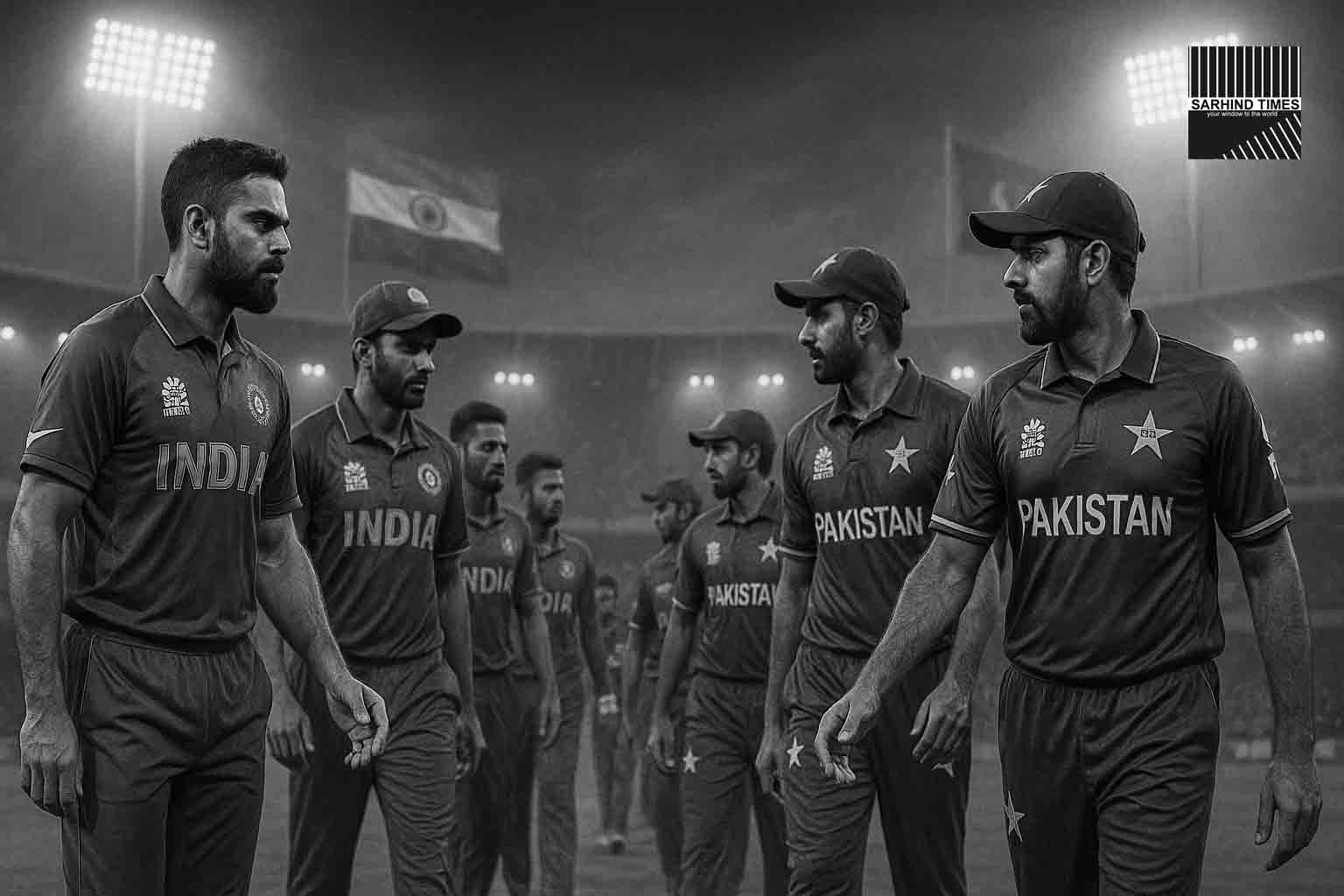16 Sep 2025
Victory Shadowed by Controversy
India’s cricketing triumph at the Asia Cup 2025 has been accompanied by a storm of controversy. While the Men in Blue became the first team to qualify for the Super 4 stage, their achievement has been overshadowed by the fallout from the much-discussed handshake row following the India-Pakistan match. The unusual absence of the customary post-match handshake has stirred debate across cricketing circles, with political undertones adding fuel to the fire.
This development adds a layer of intrigue to what is already one of the most emotionally charged sporting rivalries in the world.
How India Qualified for the Super 4
India’s qualification was confirmed not only through their own performances but also with help from unexpected quarters. A 42-run win by the United Arab Emirates (UAE) over Oman ensured that India advanced first to the next round, securing their Super 4 berth before the group stage was complete.
The UAE’s spirited performance added drama to the group dynamics, leaving Pakistan in a precarious position. Pakistan now faces a do-or-die situation, needing to win upcoming matches and rely on favourable results elsewhere.
The Handshake Row: Sportsmanship or Symbolism?
What should have been a celebration of India’s qualification quickly turned into a debate on sportsmanship. After the India vs. Pakistan clash, players from both teams avoided the traditional handshake, an act that did not go unnoticed by fans or cricket boards.
The Pakistan Cricket Board (PCB) released a statement condemning the act as “unsportsmanlike and disrespectful.” Indian officials, however, have been tight-lipped, neither confirming nor denying whether the decision was intentional or circumstantial.
For many observers, the incident reflects more than just a sporting gesture. It comes against a backdrop of strained political relations between the two neighbours, making the absence of a handshake a symbolic event as much as a sporting one.
Sports Meets Politics: A Familiar Story
The India-Pakistan cricket rivalry has often mirrored the diplomatic tensions between the two nations. From canceled bilateral series to high-stakes World Cup encounters, cricket has frequently served as a proxy battlefield.
- Past Precedents: Handshake controversies have arisen before in Indo-Pak matches, though rarely as visibly as this one.
- Fan Reactions: Social media erupted with polarized commentary—some fans saw the act as justified national pride, while others decried it as a loss of cricketing spirit.
- Global Eyes: International cricketing bodies and neutral commentators stressed the importance of keeping sports separate from politics, though acknowledging that in this rivalry, the two are almost inseparable.
Pakistan’s Predicament
While India enjoys a morale boost, Pakistan faces growing uncertainty. Their path to the Super 4 is now precarious:
- They must win remaining group matches convincingly.
- They must also rely on other results to align in their favour.
The added psychological pressure of the handshake controversy could weigh heavily on the players, who are already facing scrutiny from their domestic media and cricketing authorities.
Expert Analysis
- Former India Captain, Rahul Dravid:
“Cricket is about competition, but it’s also about respect. I hope players on both sides don’t let politics overshadow the spirit of the game.”
- Pakistani Analyst Aamer Sohail:
“The handshake snub has created unnecessary noise. The focus should be on Pakistan’s performance, which has been inconsistent.”
- Neutral Commentator Harsha Bhogle:
“The irony of cricket is that it unites fans globally but divides them sharply in South Asia. India’s qualification is a cricketing story, but it’s been framed through a political lens.”
Beyond the Cricket Field: The Larger Impact
This episode underscores how cricket in South Asia is never just about bat and ball. For millions, it carries national pride, political meaning, and emotional intensity.
- Diplomatic Symbolism: Small gestures (or lack thereof) can have outsized interpretations in India-Pakistan relations.
- Sports Diplomacy: Instances like these weaken efforts to use cricket as a bridge for peace.
- Global Perceptions: Such controversies often dominate headlines abroad, overshadowing actual sporting achievements.
Looking Ahead: India’s Road in the Super 4
With qualification secured, India can now strategize for the Super 4 stage with relative comfort. Key focuses will include:
- Rotating players to manage workload.
- Sharpening middle-order consistency.
- Preparing for potential rematches with Pakistan, where the atmosphere will be even more charged.
For Pakistan, the priority is survival. A win is not enough—they must also hope the mathematics of the points table tilt in their favour.
Conclusion: A Win Beyond the Scoreboard
India’s qualification for the Asia Cup 2025 Super 4 is an undeniable sporting achievement. Yet, the narrative has been overtaken by the handshake controversy, reminding us once again that cricket between India and Pakistan transcends sport. It is a mirror of geopolitics, public sentiment, and national identity.
As fans await the Super 4 clashes, the question lingers: will the spotlight return to cricket, or will off-field tensions continue to shape the story of the tournament?
#AsiaCup2025 #IndiaCricket #Pakistan #HandshakeControversy #Super4Qualification #SportsDiplomacy #CricketNews #IndvsPak




+ There are no comments
Add yours